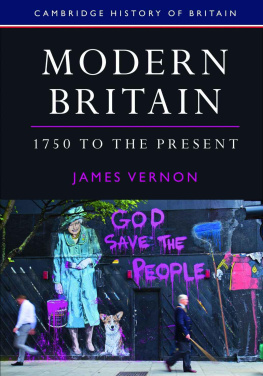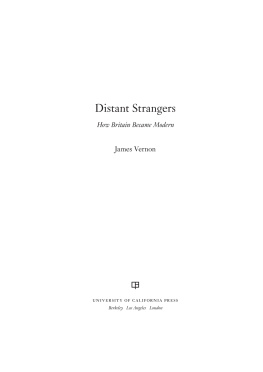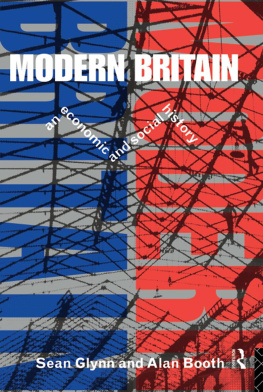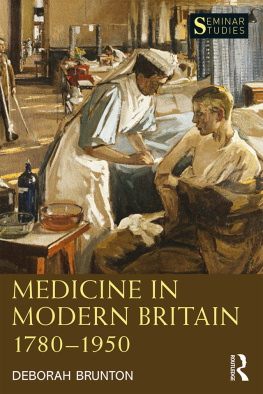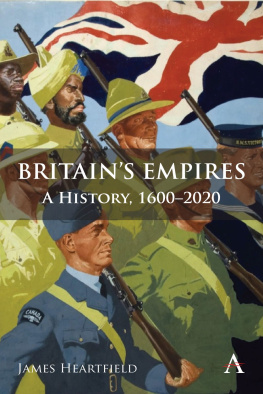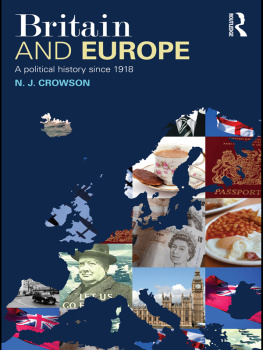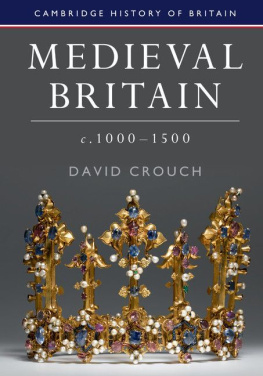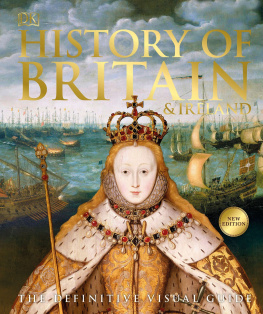Modern Britain, 1750 to the Present
This wide-ranging introduction to the history of modern Britain extends from the eighteenth century to the present day. James Vernons distinctive history is woven around an account of the rise, fall and reinvention of liberal ideas about how markets, governments and empires should work. It is a history that takes seriously the different experiences within the British Isles and the British Empire, and offers a global history of Britain. Instead of tracing how Britons made the modern world, Vernon shows how the world shaped the course of Britains modern history. Richly illustrated with figures and maps, the book features textboxes (on particular people, places and sources), further reading guides, highlighted key terms and a glossary. A supplementary online package includes additional primary sources, discussion questions and further reading suggestions, including useful links. This textbook is an essential resource for introductory courses on the history of modern Britain.
James Vernon is Professor of History at the University of California, Berkeley. He is the author of Politics and the People (1993), Hunger: A Modern History (2007) and Distant Strangers: How Britain Became Modern (2014), and the editor of Rereading the Constitution (1996), The Peculiarities of Liberal Modernity in Imperial Britain (2011) and the Berkeley Series in British Studies for the University of California Press. He is also on the editorial boards of Social History , Twentieth Century British History and Journal of British Studies .
Cambridge History of Britain
The Cambridge History of Britain is an innovative new textbook series covering the whole of British history from the breakdown of Roman power to the present day. The series is aimed at first-year undergraduates and above and volumes in the series will serve both as indispensable works of synthesis and as original interpretations of Britains past. Each volume will offer an accessible survey of political, social, cultural and economic history, charting the changing shape of Britain as a result of the gradual integration of the four kingdoms and Britains increasing interaction and exchange with Europe and the wider world. Each volume will also feature boxes, illustrations, maps, timelines and guides to further reading as well as a companion website with further primary source and illustrative materials.
Volumes in the Series
I Early Medieval Britain
II Medieval Britain, c .10001500
III Early Modern Britain: 14501750
IV Modern Britain: 1750 to the Present
The Cambridge History of Britain
Modern Britain 1750 to the Present
James Vernon

University Printing House, Cambridge CB2 8BS, United Kingdom
One Liberty Plaza, 20th Floor, New York, NY 10006, USA
477 Williamstown Road, Port Melbourne, VIC 3207, Australia
4843/24, 2nd Floor, Ansari Road, Daryaganj, Delhi 110002, India
79 Anson Road, #0604/06, Singapore 079906
Cambridge University Press is part of the University of Cambridge.
It furthers the Universitys mission by disseminating knowledge in the pursuit of education, learning and research at the highest international levels of excellence.
www.cambridge.org
Information on this title: www.cambridge.org/9781107031333
10.1017/9781139381611
James Vernon 2017
This publication is in copyright. Subject to statutory exception and to the provisions of relevant collective licensing agreements, no reproduction of any part may take place without the written permission of Cambridge University Press.
First published 2017
Printed in the United Kingdom by TJ International Ltd. Padstow Cornwall in 2017
A catalogue record for this publication is available from the British Library.
Library of Congress Cataloging in Publication Data
Names: Vernon, James, author.
Title: Modern Britain : 1750 to the present / James Vernon.
Description: Cambridge, United Kingdom ; New York, NY : Cambridge University
Press, 2017. | Series: Cambridge history of Britain ; 4
Identifiers: LCCN 2016041645| ISBN 9781107031333 (hardback) | ISBN
9781107686007 (paperback)
Subjects: LCSH: Great Britain History 17141837. | Great
Britain History Victoria, 18371901. | Great Britain History 20th
century. | Great Britain History Elizabeth II, 1952 | BISAC: HISTORY /
Europe / Great Britain.
Classification: LCC DA470 .V37 2017 | DDC 941.082dc23
LC record available at https://lccn.loc.gov/2016041645
ISBN 978-1-107-03133-3 Hardback
ISBN 978-1-107-68600-7 Paperback
Additional resources for this publication at www.cambridge.org/CHOB-vernon
Cambridge University Press has no responsibility for the persistence or accuracy of URLs for external or third-party internet websites referred to in this publication and does not guarantee that any content on such Web sites is, or will remain, accurate or appropriate.
To my teachers and students
Contents
Acknowledgements
This book has my name on the cover but it is really the product of my conversation with generations of scholars as well as my teachers, students and colleagues. I hope all of them will see their influence at work. Caroline Ritter, Katie Harper, Trevor Jackson and Sam Wetherell actually wrote some of the book. They checked facts, tidied my prose, found images and produced those textboxes with their initials at the end. Brandon Williams marshalled the images and permissions. Elizabeth Friend-Smith somehow convinced me to write the book and Rosemary Crawford helped me finish it. It all begins and ends with Ros. Our family, near and far, kept me in the present. I never could have imagined writing this book without those who taught me at school and university. Since then my students have been the inspiration and my teachers. Thank you all.
Figures
Maps
Tables
Graphs
Textboxes
Preface
There are countless histories of modern Britain but little agreement about what it is, when it was, where it happened, who was part of it, or how it should be told. These histories share similar titles but cover different periods of time, extend across different geographical areas and tell very different stories. This is as it should be. History is about debate and interpretation. What some have recently dubbed the History Wars are a set of arguments about how the national past should be understood and taught. As countries become demographically and culturally more diverse, politicians frequently offer increasingly prescriptive versions of their national pasts. In 2015 the British prime minister David Cameron claimed that British values of democracy, equality, tolerance and the rule of law were rooted in a national history that stretched back 800 years. Those seeking to become British citizens are tested on a similar version of this national history and it is often proposed that this is the history British school children should be taught through the National Curriculum.
Those who advocate such histories complain that in recent decades an emphasis on economic, social and cultural history has undermined the seamless and self-congratulatory chronological narrative of the past anchored in political history. Once economic, social and cultural historians insisted that the experience of ordinary Britons women and men of all classes, as well as people of all colours and creeds had to be included in the national history, the question was to what degree they would change it. Similarly, as historians began to recognize the different roles of Scotland, Ireland, Wales and England in Britains history, as well as their entanglement with continental Europe, the British Empire, and the rest of the world, it became increasingly difficult to imagine the national past as an island story that stopped on the shores of the British Isles.

